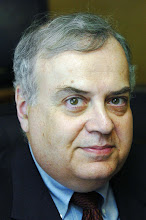Second in a series of frequently asked questions about the
Freeman:How come you didn't use my letter to the editor?
Older readers will remember the tune with the lyrics: "Letters, we get letters, we get lots and lots of letters ..." That we do. Dozens of letters a week, in fact, often more. And alhthough we clear as much space as possible for them, there's never enough to print them all.
So which ones are chosen? The ones that are generally well written and relatively short. (Most readers don't have the patience to read long letters, although a couple of days a week the best of the lengthier submissions are selected if the topics are compelling.) Priority is given to writers from whom we hear infrequently.
If we receive many letters on the same subject, we won't publish them all. But we will select a representative handful in proportion to public opinion. That is to say, if 10 letters come in, eight in favor of something, two opposed, we're likely to print four and one.
All letters are edited for style, space, grammar, and libel. We never edit in such a way as to alter someone's opinion. For those who believe their letters shouldn't be cut, understand this: If we get your point in five paragraphs, the other five paragraphs are unnecessary. (Welcome to the life of a newspaper reporter, who faces the same kind of editing every story.)
We've basically departed from the business of printing campaign letters that say little more than, "Vote for him, he's a good guy." If there's meat in campaign letters, their chances of publication increase.
If your letter is printed and others reply to it, you don't get to answer. When would it stop? We call it the ping-pong scenario. Back and forth could go on forever. So one shot for you, one shot for each respondent.
And to those who think we don't print criticism of the
Freeman, or letters with which we disagree, you haven't been reading closely. I like to tell people that if we ditched those letters, we'd have far fewer in the paper.
Oh, and one more thing: If your letter is selected, it typically takes up to 14 days from receipt to be published given the backlog of mail.
 RSS
RSS

